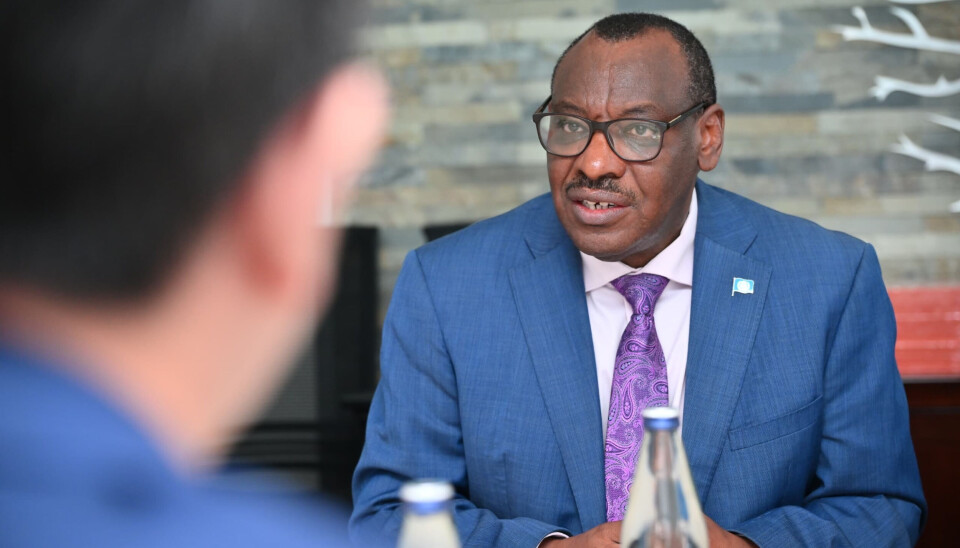Copyright : Re-publication of this article is authorised only in the following circumstances; the writer and Africa Legal are both recognised as the author and the website address www.africa-legal.com and original article link are back linked. Re-publication without both must be preauthorised by contacting editor@africa-legal.com
Innovative financing is now essential to help unlock Africa’s investment potential and development needs

During the 4th International Conference on Financing for Development, UN Economic Commission for Africa’s Claver Gatete was among those calling for an evolution in global financing systems.
While Africa is already piloting solutions for finance instruments that better reflect the continent’s developmental needs, global financing systems must adapt, said Claver Gatete, Executive Secretary of the UN Economic Commission for Africa (ECA).
“Innovative financing instruments are no longer optional, they are essential,” said Gatete during the 4th International Conference on Financing for Development (FFD4) in Seville, Spain. “The current system continues to limit Africa’s access to affordable finance, despite the continent’s investment potential and development needs.”
Speaking at a side event co-hosted by the UN’s five regional commissions - Africa, Europe (including North America and Asia), Latin America and the Caribbean, Asia-Pacific, and Western Asia - Gatete stressed a need for a shift from words to actions, and from rhetoric to results. “Unlocking private finance requires more than good ideas,” he said. “It requires trust, coherence, and credible institutions.”
FFD4 provided a unique opportunity to gather leaders from all governments, international and regional organisations, financial and trade institutions, business, civil society and the UN system to foster strong international cooperation, and to put in place a renewed global financing framework for sustainable development.
Ahead of FFD4, Li Junhua, UN Under-Secretary-General for Economic and Social Affairs, noted that unless urgent action was taken, the world would miss its 2030 deadline to deliver on internationally agreed Sustainable Development Goals (SDGs).
The world was faced with a sustainable development crisis, noted Junhua in June, where much-needed multilateralism was itself increasingly being questioned.
In March, President Trump’s administration formally rejected the SDGs, despite the United States having previously adopted - along with all other UN member states - the 2030 Agenda for Sustainable Development, which includes the SDGs. In further regressive steps Trump dissolved USAID, and withdrew from FFD4 completely.
“The SDGs are not just abstract global targets; they represent the lives and livelihoods of people all over the planet,” said Junhua. “If our climate and poverty targets are not met, people suffer. More than $4 trillion dollars in additional investment is needed in developing countries every year to achieve the SDGs.”
Despite troubled global times, the rest of the world came together in Seville to address the challenges facing sustainable development, with 15,000 attendees conversing and negotiating across four days. This led to the adoption of the Sevilla Commitment, and an ambitious suite of initiatives to bridge the investment gap.
Throughout FDF4, African delegates emphasised key priorities including debt relief, access to concessional finance, climate funding, and private capital mobilization.
“For Africa, this is not a theoretical discussion,” said Gatete. “It’s a matter of survival, transformation, and sovereignty over our development trajectory.”
The ECA notes that Africa’s investment potential is real and growing, and with AfCFTA creating a $3.4 trillion economic bloc spanning 1.5 billion people, and a steady pipeline of bankable projects across a variety of sectors, it argues that the missing link is not opportunity, but perception.
Gatete criticised how “outdated risk models and skewed credit ratings continue to push capital away from the continent, despite reforms and opportunities on the ground”, and proposed the creation of an Integrated FFD Follow-up System, with regional observatories and country-level coordination units. In Africa, this would be co-led by the African Union Commission, ECA, and the African Development Bank.
You can read the full 38-page Sevilla Commitment, here.
